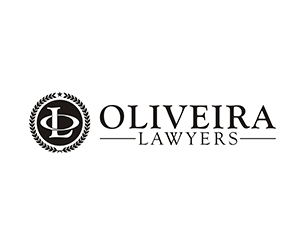Slip and Fall Accidents
The term slip and fall applies in personal injury cases where somebody trips or slips and sustains injuries on somebody else’s property. Such cases typically belong to the wider category of cases termed “premises liability” claims.
These accidents typically take place on maintained property or property owned by somebody else, and the property owner might be deemed legally liable. If you or a loved one is a victim, hiring a professional slip and fall attorney is essential in obtaining due justice.
Without appropriate legal representation and investigation into the particulars of an accident, numerous courts will dismiss your case as ungrounded or frivolous. Here’s what to do if you’re seeking compensation as the result of a slip and fall accident.
Contact Us Now
[email protected]
212-300-7174
Schedule a Free Consultation!
The Sources of Slip and Fall Accidents
What might seem like a simple accident-tripping, slipping, or stumbling could have dire consequences. A slip and fall accident could cause severe injuries, for instance, a traumatic head injury, severe back injuries, a broken hip, or even death.
If you’ve sustained a serious injury in this type of accident on somebody else’s property, you might have a legal ground for seeking compensation if the fall was the result of negligence from the property owner.
The skilled attorneys at Oliveira Lawyers are prepared to investigate the circumstances surrounding your accident and pursue compensation for resulting medical costs and other losses. These accidents commonly entail negligence in handling possible hazards such as:
- Wet walkways and floors
Managers or property owners must ensure the prompt cleaning of liquid spills, for instance, from puddles of ice or snow, or other unintentional wetness. If mopping has to take place, signs indicating “wet floor” should be in place to warn people.
- Fallen merchandise and cluttered aisles
Store Owners shouldn’t stack products in aisles or leave supplies, trash, or equipment on floors, producing a hazard. Store managers should equally avoid overfilled shelves or huge floor displays which are potential hazards.
- Escalators and Elevators
Improperly maintained escalators and elevators can malfunction by starting or stopping abruptly, causing a trip or slip.
- Damaged floor coverings and floors
Property managers and owners should stay abreast of maintenance needs to make sure that broken, torn, or loose carpet, floor tiles, etc don’t create a trip or slip hazard. Damaged or loose handrails on stairways could also cause falls.
Types of Slip & Fall Injuries
Slip & fall injuries can be very serious. You could lose time off work, end up with unexpected medical costs, and need ongoing medical care. You could even end up with a disability or need permanent help to accomplish basic tasks. These injuries can cause various injuries, including:
Soft Tissue Injuries
This injury affects the muscle, tendon, or other fibrous body tissues. The injury can range from minor to extremely serious. A minor injury includes a sprained ankle while a serious one includes a torn tendon, muscle, or ligament.
Head, Brain, and Neck Injuries
Slips & falls could cause your head to hit the ground, a curb, or another surface. Irrespective of the surface on which you hit your head, the motion could cause a neck, head, or brain injury. A brain injury could change your life, resulting in constant medical care.
What Do I Need to Do to Win a Slip & Fall Case?
A successful claim is dependent on how well you and your attorney can prove three things:
Negligence
To prove negligence, you must demonstrate that the defendant didn’t act prudently to avoid the injury. For instance, the court will want to establish whether the hazard existed for an adequate period before the defendant discovered it.
In an instance where someone throws a banana peel and you slip on the floor immediately afterward; the defense is likely to argue that the defendant didn’t have adequate time to recognize the peel on the floor and pick it up.
On the other hand, if it was on the floor for at least half an hour or more, the judge might decide that the defendant had enough time to discover it and remove it.
Fault/Responsibility
This is perhaps the hardest to prove. If your lawyer can prove that the defendant was responsible for the accident in which you sustained an injury or behaved in a manner that led to the accident, you might have a positive court outcome or out of court settlement.
Care Duty
Everybody has a care duty when doing something where a third party might sustain an injury. A premise owner has various levels of care duty towards the premise entrants depending on the group of entrants they belong to.
An invitee represents the highest entrant level and denotes anyone invited to premises by the owner, for instance, a client at a store. In this case, a premises owner has a reasonable care duty to repair and maintain the premises to prevent the injury of invitees. Other entrant categories, trespassers, and licensees receive a correspondingly reduced care duty.
A licensee is someone who’s on another person’s property with permission when the property isn’t open to the public while a trespasser is someone who’s on another person’s property without authorization when the property isn’t open to the public.
Although an owner should warn a licensee of dangers, they have a more restricted care duty to repair or maintain the premises or protect it from dangers. Besides refraining from an intentional injury, a property owner has no care duty to trespassers.
CONTACT US
You or a loved one deserves compensation if you are a victim of a slip & fall accident. However, you’ll need to work with the right law firm to obtain the deserving compensation. Contact us today for a consultation.


